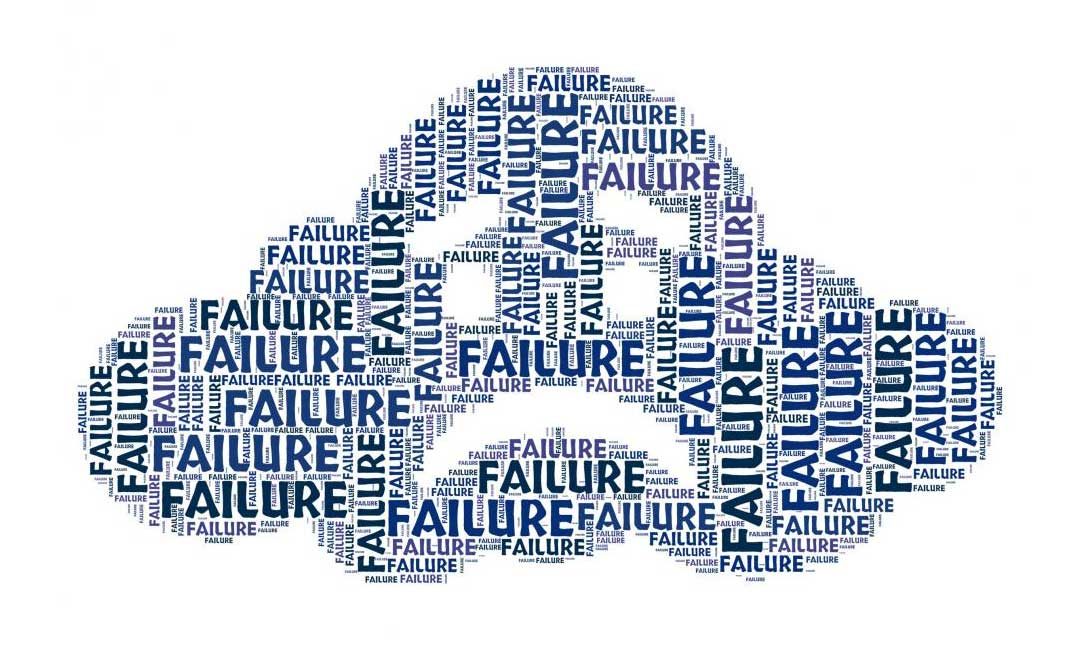
by Fred Stuvek Jr. | Dec 2, 2019
The mettle of an organization and an individual’s character are revealed in how they deal with failure. Avoidance is not a winning strategy. You have to face failure head-on. When you do find yourself in this predicament, adhere to these basic steps for your recovery:
1. Mind-set – The first and most important thing to do is to get your mind right. Do not dwell on it, indulge in self-pity, or feel sorry for yourself. It will not change what happened. You failed because you had the courage to try something and it did not work out, but you have a choice. That choice is how you react and how you deal with it. Look at this as a learning lesson on the path to success. Have faith in yourself and be determined and motivated to find a way or make one. Maintain your composure, stay focused, and stay positive with the firm belief and commitment in what you are doing providing you with the courage and wherewithal to keep moving forward.
2. Accurate Date and Feedback – You need to find out what went wrong, what the consequences are, and what potential options exist. Basing your recovery and actions on inaccurate or misleading information compounds things, possibly turning a failure into a tragedy. It is imperative to get an accurate assessment, which requires candor and honesty, with an environment conducive to this type of exchange of information.
3. Be Objective and Rational – Exercise self-control, and resist actions you will later regret. Keep your head in the game as decisions made in an emotional or angry manner are almost always bad decisions, laden with negative consequences.
4. Learn, Plan, and Adapt – There are two lessons to be learned here. The first is what caused the failure. The second is taking heed of the events causing the failure in order to prevent future recurrences. Break it down into the essential components, understanding that oftentimes it is not one thing, but a series of events which caused it to happen. Whatever the cause, get to the root of it, and take action.
5. Be Realistic and Resilient – Emerging from failure is a process, fraught with ups and downs, and takes time. The factors that will determine what you can do or what you can’t do are usually resource-or time-related. Be prepared to make tough decisions, paying heed not only to what went wrong, but also what went right. Perseverance and determination are critical to seeing things through. You must have the character and strength of will to get through it. Take care of your people; there are others around you who may not be as resilient as you are and may not fare as well.
Read More

by Fred Stuvek Jr. | Nov 13, 2019
Success is a number of things done consistently well, across the spectrum. Failure is the antithesis, with the reasons for failure caused by any one or a combination of the following:
1. Staying in your Comfort Zone – We place a high value on winning above all else; many equate the thought of failing with losing. Consequently, a mind-set of “never fail, never lose” is adopted, which is a flawed line of thinking. Your commitment to succeed must be stronger than your fear of failure, otherwise you never try, which in itself is a failure since you are not doing anything and will never realize your full potential.
2. Lack of Belief – A passionate belief in what you are doing and confidence in your ability are essential. The absence of either one of these two ingredients will ultimately catch up with you. Your strength of conviction and belief in yourself will imbue you with confidence to face whatever is put in front of you.
3. Lack of Competence – Your ability directly translates to your skill set. If do not have the requisite training or background you will lack confidence, have low self-esteem, and continually be on the defensive. Ensure you are a good fit for what you are doing, play to your strengths, and develop a distinct set of competencies which enhance your prospects for continued success.
4. Lack of Perseverance – Nothing good comes easily or quickly. You have to work for it, stay with it, and never give up. It is imperative for you to have the conviction, determination, and will to weather the bad times in order to reach your goals.
5. Lack of Character – Character counts; it matters. Individuals with a negative attitude and fatalistic views do not imbue confidence. Holding others accountable but never accepting responsibility is unfair to those on the team. Intolerance and lack of empathy to those around you affects teamwork and morale. Holding others to one set of standards, while compromising those same standards through your actions, undermines your personal authority.
6. Lack of Discipline – Discipline relates directly to self-control, which must be practiced in order to be disciplined. It means continually adhering to the highest standards of conduct and business practice, avoiding shortcuts and temptations to do otherwise. You face problems head-on and do not procrastinate, understanding you have to put in the time, make sacrifices along the way, and exhibit a strong work ethic.
7. Lack of Focus – There needs to be continuing attention and focus on strategy, process, and implementation, including metrics and timeline. You need to be cognizant of direction, warning signs, and make course adjustments as necessary. Avoid devoting an inordinate amount of time to distractions which do not contribute to your personal and professional goals.
8. Business Partners – Most of the problems in business are people related. Great care should be taken when putting together a team to ensure you have the right balance of talent with good chemistry. Just as importantly, make sure who you hire is who they say they are and has accomplished that which is being touted.
9. Lack of Resources – This is usually finance related, pertaining to the inability to raise funds or the depletion of funds. Close attention must be paid to cash flow and trends, ensuring that reserves are put aside, and most importantly, that plans are realistic and attainable.
10. Poor Planning and Execution – When a business is in peril or fails, poor planning and execution are always central contributors. An aggressive plan with bad management and poor communication is usually fatal. Poor leadership combined with arrogance usually results in an inability, even unwillingness, to accept feedback, which later manifests itself in an avalanche of hidden problems. A lack of clear goals and little to no accountability jeopardize your ability to track and determine progress toward objectives, metrics, and timelines.
Read More

by Fred Stuvek Jr. | Nov 6, 2019
What is worse than failing? One answer is, “Never trying and never knowing.” That is even worse than failure, as you will one day sit back, reflect, and wonder, “What if?” You may even regret it and say, “If I had it to do all over again, I would have given it a shot.” The lesson here is to avoid making a decision for the wrong reasons, chief among them being the fear of failure.
“There is only one way to avoid criticism: do nothing, say nothing, and be nothing.” Those were Aristotle’s comments concerning criticism. You can just as easily substitute the word “failure” for “criticism,” as the only way you will avoid failure is to do nothing.
One needs to be prepared to accept that failure is part of life. You are not along in this regard and are not being singled out by forces intent on wreaking havoc. If you are living your life based on a fear of failure, you are doing yourself a great disservice.
There is no way to avoid failure; life is a series of wins and losses, ups and downs. However, steps can be taken to reduce the failures and mitigate the impact. You can emerge stronger, wiser, and better equipped for the next challenge if you maintain the right mind-set and take the right approach.
An important part of dealing with failure is to accept failure for what it is, learn from it, adapt, and grow. As Winston Churchill so eloquently stated “Success is the ability to move from one failure to another with no loss of enthusiasm.”
You will assuredly be faced with adversity and experience failure, both professionally and personally. How one responds to these circumstances not only reveals character but builds character. When faced with difficult circumstances, there are a number of things that you can do to weather the storm. However, first you need to be cognizant of the ten reasons for failure, which I will address in my next blog.
Read More

by Carl H. Sharperson, Jr. | Oct 17, 2019
Below is why I believe that Sharp Leadership is a manual, to overcome adversity in any environment and in any stage of life. I believe that everyone in the world should have a copy of this book, on them at all times, as they go on this journey called life. Life is going to knock you flat on your butt at least one time in your life, and when it does, how fast are you going to get up, if you get up at all?
The leadership principles and real-life stories that I talk about in my book, Sharp Leadership – Overcome Adversity To Lead With Authenticity, are lessons that I have learned in every walk of my life. They work at home when you are trying to rear your children to be self-sufficient, have good moral character, treat people fair, and believe in the Lord or a power higher than themselves. These guiding principles work when you are trying to be a good spouse and have a fruitful long-term marriage, when the divorce rate is currently about 50%. These leadership tips work when you are on your job and you have a tyrant for a boss and you need to put food on the table. These nuggets work when you are competing on the athletic field, participating in an individual sport and or a team sport. These truths are valuable when you are serving in a capacity as a religious/church leader or parishioner. More important than that, is having the ability, to take your faith walk to the marketplace, and let your uncompromising light shine, in the darkness of this world. If you have chosen to be an entrepreneur and step out on your own, then these rules of the road will help you sell your product by building solid long-term relationships with quality people. They will also help you to create a superior product and deliver world class customer service. My most important pearls of wisdom, were taught to me, when I was eager to listen and I did not have the resources at my disposal to fix whatever problem or obstacle, that I was facing at the time. In other words, I go knocked down, and could not get up by myself. I was not smart enough, strong enough, wealthy enough, or creative enough to fix the problem or overcome my circumstances. My rock-solid simple principles of never quitting, taking care of your people, building deep – long term relationships, and keeping the priorities of Faith, Family, and friends, when the storms come, are what has kept and keep me going. A burning passion to give back to the next generations as my ancestors did, keeps me energized.
Please feel free to contact me on my website and let me know how we can partner, as well as order my book through my website, where I can autograph a copy for you. My book can also be ordered on Amazon or Barnes & Nobles.
Be blessed,
Carl H. Sharperson, Jr.
Speaker | Author | Leadership Innovation Strategist
Order Sharp Leadership Book
www.CarlSharpersonJr.com
Read More




